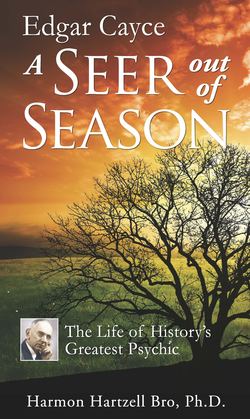Читать книгу Edgar Cayce A Seer Out of Season - Harmon Hartzell Bro - Страница 19
На сайте Литреса книга снята с продажи.
His Sense of Global Violence
ОглавлениеWe made small talk about our trip on a train so crowded that soldiers and sailors stood in the aisles. Cayce spoke with such easy knowledge about Chicago and other cities on our route, as well as about porters and dining cars and berths, that it was soon clear he was a sophisticated traveler. Later I would learn, in part by journeying with him, how much he liked to take trips and how (as his family put it) he could pack a bag in five minutes. I would discover that he had been to most of the major urban centers of the country, often many times, as he responded to emergency pleas for aid and searched for how best to serve with his unusual gift. At the moment I could only note how the image of a well-traveled American collided with stereotypes of a helpless, unworldly ascetic which his Catholic biographer had faintly suggested in portraying him as the victim of a remarkable endowment.
Soon we turned our exchanges to the war, commenting on the strangeness of the total blackout. Cayce spoke with quiet pride of his two sons in military service, Hugh Lynn and Edgar Evans, one overseas and the other headed there. Yet as he described their assignments, his face showed for a moment the sharp-edged loss he felt from their absence. It seemed likely that family ties might be more important to him than Southern mores already made them. Being a man with a dubious calling would enhance his dependence on them and make their distance under peril a persistent wound.
The gravity of the war engaged him deeply as he continued to speak. He told of the servicemen who wrote him often from their overseas posts, telling their anxiety about the meaning and destiny of their lives and their nation. A few even asked how to face their own threatened dying, since they knew him well enough to credit his unusual abilities, including seeing past death. What would happen to them, they wanted to know, in the first hours after being killed, and how should they prepare?
Most were young men from the Sunday school classes he had taught for over fifty years or the sons of those in his classes from churches at Virginia Beach, at Selma, Alabama, or in Kentucky. He tried when he answered each letter, he said, to create a helpful perspective. And he prayed for those to whom he wrote. To him humankind was going through a terrible trial and refinement by fire, having to learn to rely more on spiritual reality and on brother-sisterhood before God. Each individual caught in the conflict had to search for the same final realities. His observations did not sound like ritual sentiments from a Bible teacher, for he spoke haltingly, as though searching for images for the unthinkable destruction which crowded us all.
How deeply he felt a part of the times and responsible to affect its outcomes, rather than being a mental wonder-worker on the sidelines, became even clearer when Gladys referred briefly to a vision which had come to Cayce in 1936, telling him of the coming world conflict. Cayce had been working in his garden, where he loved to spend his hours out of his office, when he looked up to see a searing panorama of blood-red chariots riding across the sky above the ocean. Beside him there suddenly stood a man in tunic, helmet, armor, and leg guards of ancient times, saying, “The chariots of the Lord, and the horsemen thereof,” before he abruptly disappeared. To Cayce the vision meant the coming of death and destruction on a tremendous scale, and he dropped his hoe and ran into the house. He shook so badly that his elder son thought he was having a heart attack. And Cayce was so affected by the tragedy he had seen that he was unable to speak of it for several days. Such an experience might be psychic. But it was a long way from giving mediumistic messages from the dead in a darkened room. It spoke of Cayce’s profound concern for his fellows in an ominous and bloody age.
